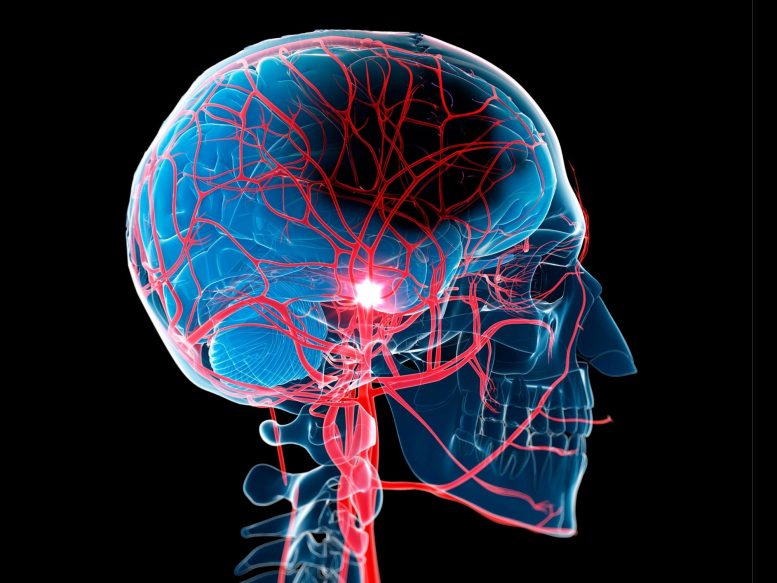
A natural compound present in the brain shows promise in reducing stroke damage by protecting the blood-brain barrier and lowering inflammation.
DMT, short for dimethyltryptamine, is a naturally occurring psychoactive compound that exists in a variety of plants and animals.
A recent study published in Science Advances by researchers at the HUN-REN BRC Institute of Biophysics and the Semmelweis University Heart and Vascular Centre reports that DMT can lessen the damaging impact of stroke in both laboratory cell cultures and animal models.
A solution from nature in the spotlight
This compound is also produced in the human brain, where it is now being investigated in clinical trials as a potential aid for restoring brain function following stroke. Until recently, the way DMT worked in this context remained unclear. “It is amazing how we can always turn to nature to find ingenious solutions for health problems,” says co-lead author Mária Deli from the HUN-REN BRC.

The blood-brain barrier as a therapeutic target
“We found that DMT significantly reduced infarct volume and edema formation in a rat stroke model,” explains co-first author Marcell László. In both animal experiments and cell culture models, the authors showed that DMT treatment restored the structure and function of the damaged blood-brain barrier and improved the function of astroglial cells.
This psychoactive compound also inhibited the production of inflammatory cytokines in brain endothelial cells and peripheral immune cells, while reducing the activation of brain microglia cells through Sigma-1 receptors.
DMT could serve as therapeutic adjuvant to existing stroke treatments
“The therapeutic options currently available for stroke are very limited. The dual action of DMT, protecting the blood-brain barrier while reducing brain inflammation, offers a novel, complex approach that could complement existing treatments,” says Judit Vigh, co-first author of the work.
Since current stroke therapies do not always result in full recovery, a DMT-based treatment may represent a promising new alternative, mainly in combination with existing methods. The recent findings from researchers in Szeged and Budapest, Hungary, support the development of a therapy that goes beyond the limitations of conventional stroke treatment. Clinical trials on the use of DMT and investigations on its long-term effects are currently ongoing.
Reference: “N,N-dimethyltryptamine mitigates experimental stroke by stabilizing the blood-brain barrier and reducing neuroinflammation” by Marcell J. László, Judit P. Vigh, Anna E. Kocsis, Gergő Porkoláb, Zsófia Hoyk, Tamás Polgár, Fruzsina R. Walter, Attila Szabó, Srdjan Djurovic, Béla Merkely, Alán Alpár, Ede Frecska, Zoltán Nagy, Mária A. Deli and Sándor Nardai, 13 August 2025, Science Advances.
DOI: 10.1126/sciadv.adx5958
Never miss a breakthrough: Join the SciTechDaily newsletter.
1 Comment
What ‘d you noodle-pies been up to in that lab of yours???
I see you – :-}